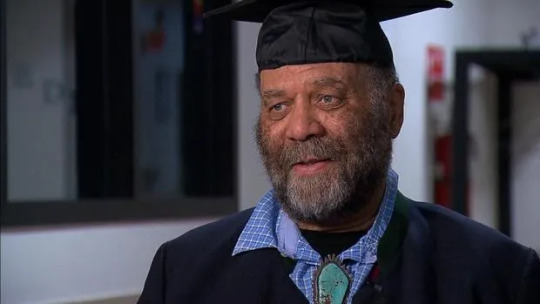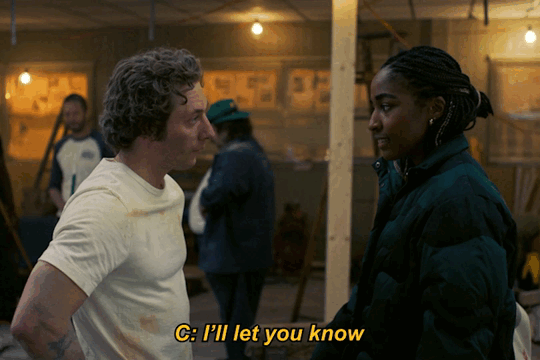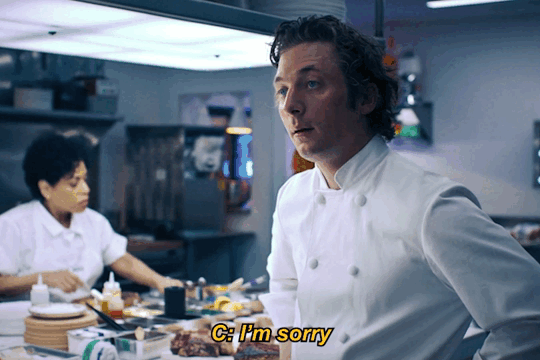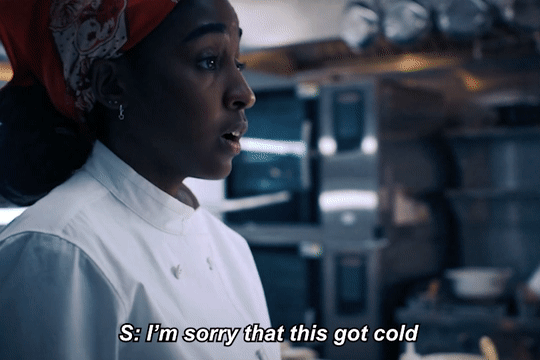#Depression Treatment in Sydney
Text
Top Psychologists Castle Hills | Mental Health Experts Near You
Find trusted psychologists in Castle Hills for expert mental health care. Our dedicated professionals offer compassionate support and evidence-based therapies to help you navigate life's challenges. Whether you're seeking therapy for anxiety, depression, or personal growth, our Castle Hills psychologists are here for you. Take a step towards improved mental well-being by contacting our experienced team today.
#depression treatment in sydney#psychologist in bella vista#psychologist for depression#telehealth medicare psychologist#depression psychologist#ptsd treatment#depression psychologist in sydney#trauma psychologist in sydney#psychologist in sydney#telehealth psychologist in sydney#Potentialz Unlimited#Psychologists Castle Hills
0 notes
Text
#stress management sydney#stress counselling sydney#hair loss central coast#hypnotherapy for stress central coast#hypnotherapy for stress#hair loss treatment central coast#hypnosis stress#depression hypnotherapy#stress counselling#awareness healing
0 notes
Link
Sydney TMS offers an innovative and highly effective depression treatment Sydney using Transcranial Magnetic Stimulation (TMS) therapy. Their state-of-the-art treatment center provides a safe and non-invasive approach to treating depression without the need for medication. Their experienced team is dedicated to providing personalized care and support to help you manage your depression and improve your quality of life. Visit https://www.sydneytms.com.au/treatment-for-depression/ for more.
0 notes
Text
#acupuncture for depression treatment in Sydney#acupuncture for depression treatment#acupuncture for depression#acupuncture therapy in nsw#therapy
0 notes
Text
The Best News of Last Week - May 15, 2023
🧲 - Magnetic Marvels: Researchers Flip the Switch on Depression
1. New Zealand Government announces prescriptions charges will be free.

The $5 prescription fee at pharmacies will be scrapped in July. This is set to save about 3 million people a year money, and in particular 770,000 people aged over 65. It will make most prescriptions in New Zealand free.
Free access to medicines is also hoped to ease pressure on the over-burdened health system by helping people get medicines sooner.
2. Platypuses return to Sydney's Royal National Park after disappearing for decades

Platypuses have been relocated to the Royal National Park in Sydney, after they disappeared from the park's waterways about 50 years ago. A joint project by the University of New South Wales, NSW National Parks and Wildlife Service and the World Wildlife Fund has reintroduced five females to the Hacking River, with a group of males to follow next week.
3. 74-year-old musician Otis Taylor gets Denver high school diploma decades after being expelled for hair

A musician who was expelled from a Denver high school over 50 years ago received his diploma. Otis Taylor was kicked out of Manual High School in 1966 because of his hair. This was decades before laws ending racial hair discrimination. Denver Public Schools wanted to right a wrong.
4. Researchers treat depression by reversing brain signals traveling the wrong way (with magnets)

A new study led by Stanford Medicine researchers is the first to reveal how magnetic stimulation treats severe depression: by correcting the abnormal flow of brain signals. Powerful magnetic pulses applied to the scalp to stimulate the brain can bring fast relief to many severely depressed patients for whom standard treatments have failed.
The FDA-cleared treatment, known as Stanford neuromodulation therapy, incorporates advanced imaging technologies to guide stimulation with high-dose patterns of magnetic pulses that can modify brain activity related to major depression. Compared with traditional TMS, which requires daily sessions over several weeks or months, SNT works on an accelerated timeline of 10 sessions each day for just five days.
5. Electricity generation through solar, wind and water exceeded total demand in mainland Spain on Tuesday, a pattern that will be repeated more and more in the future

The Spanish power grid on Tuesday tasted an appetizer of the renewable energy banquet that is expected to flourish in the coming years. For nine hours, between 10 a.m. and 7 p.m., the generation of green electricity was more than enough to cover 100% of Spanish peninsular demand, a milestone that had already been reached on previous occasions, but not for such a prolonged period.
6. RI Senate passes bill making lunch free at all public schools

Free lunch for all public school students in Rhode Island is one step closer to becoming a reality.
Tuesday night the Rhode Island Senate overwhelmingly passed a bill by a vote of 31-4 that would do just that. If the companion bill in the House were to pass, that takes effect July 1. The bill would make breakfast and lunch free for all public school students in the state, regardless of their household income.
7. Critically endangered red wolf pups born at North Carolina Zoo
The North Carolina Zoo in Asheboro celebrated the arrival of “not one but TWO litters” of the world’s most endangered wolf – the red wolf – in late April and early May.
A total of nine pups were born – three to parents Marsh and Roan, and six to Denali and May – the zoo announced on May 9.
----
That's it for this week :)
This newsletter will always be free. If you liked this post you can support me with a small kofi donation:
Buy me a coffee ❤️
Also don’t forget to reblog.
SUBCRIBE HERE for more good news in your inbox
2K notes
·
View notes
Text
In defense of the "I am sorry" sign

images by @drrav3nb
Been thinking about how I think their relationship got closed not despite the sign but because of it.
The "I'm sorry sign" is introduced by Carmy as a method of de-escalation of conflict in the middle of service, something that will allow the people involved to talk about the issues later. The issues are hurt feelings, unclear expectations, miscommunications, and other stuff that can happen when everybody is anxious and trying to go through service by the skin of their teeth. In the season finale, we actually see them use it in this context, but most of the season we feel they used it for things that they actually should be talking about, not just leaving for later.


The "later" part never comes. Across season 2, they used the sign to avoid discussing things they felt scared/guilty about. But, being fair, neither Carmy nor Sydney were ready to discuss what was coming between them. Carmy has depression, anxiety, and abandonment issues that he cannot even process, on top of a relationship that doesn't make him feel completely good, even if he doesn't know why because everything is so great. Sydney is jealous; we don't know if she has processed her feelings for Carmy yet. But she also was counting on him to guide her through this process, and she feels that if she fails, it will be on her, not his lack of leadership, or, yk, that she has never done anything remotely as difficult before. She is drowning in fear, and she wants some sort of support.
STOP
Syd and Carmy were explosive/confrontative in expressing their frustration; Sydney is mostly implosive; she deals with her frustration in private, and it takes a lot to make her explode as the others do. She primarily deals with Carmy with bitter questions and sarcastic treatment (she is better than me), and Carmy responds with exasperated attempts to explain himself; he gets defensive the way we know he is used to defending herself in his family (fishes).


But the 'sorry sign' is actually something that they use to stop the escalation of their (personal) conflict. I think the moment they use it in "Bolognese" is a perfect example. They both use the "I am tired" explanation, which is kinda true, but they are not going to the "core" of the issue. But, if anything, they knew they were hurting each other by raising their voices and assigning blame, and they decided they didn't want to hurt each other in any way.
They applied the sorry sign to move to harmony, even with shaky bases. Is a noble intent. It is kind of amazing that by the end of this conversation the conflict is kind of left behind, and they can laught at stupid jokes again. They can be each other again, they can be what they are with each other, even if the pain/hurt is somewhat still there. After all, they are bussines partners only.
What I want to say, is that they could have easily antagonized each other this season and decided not too. I know it doesn't seem as much, but many couples struggle with this; they can take a "are you vs. me" attitude. Carmy and Sydney pause and decide to recognize the other's point of view and needs, and they set up expectations for the future. Mainly, Sydney is clear about the behaviors she will not tolerate, and Carmy expresses his intentions of not disappointing her and how important she and their relationship is to him. Idk if I am explaining it well; I like the fact that they prioritize their partnership, even if they don't know the true nature of it yet. Carmy has a lot of fault on this because, again, it feels like she is covering for him in many ways, but still, the intent is noble; there is love behind it.
#I just think that in this part of their relasionship#they were kind mature and healthy#at least they were not intentionally hurting each other#sydney adamu#the bear#the bear fx#carmy berzatto#sydney x carmy#carmy the bear#carmen berzatto#the bear meta#carmy x sydney#sydcarmy
54 notes
·
View notes
Note
(Thank you. Here is the Sirris fic as promised. It is late but I kept tweaking it. I would have liked it to be longer. Hopefully, you enjoy.)
You don’t know how to talk to your kid, and none of the advice you’ve found is helping. You can admit it. Every parenting resource says that parents have trouble communicating with their teenage children. But you teach teenagers for a living. Your students like you. They’ll talk to you. Sydney won’t. Well, Sydney will talk, but it’s the minimum. “I had a good day today.” “I’ll be staying overnight at the temple.” “We’re almost out of crisps.” Sydney rarely starts conversations with you.
You try to let Sydney know that you are always there to talk to about anything. You won't judge. Your students know they can talk to you about anything. One of them came up to you after class the other day and asked you about the morning after pill. You've had students talk to you about hormones, anxiety, drugs, menstrual cycles, and depression. You're thrilled that you can help students and that students trust you to help, but the happiness is dulled when you try to think of the last time Sydney asked you for help.
The parenting books and magazines and online forms say that parents should show nonjudgmental interest in their children’s interests. It’s hard to support your kid’s interests when Sydney’s biggest interest is the temple. ….you don’t want to talk about the temple. It reminds you of ẏ̵͉ŏ̵̺͎͂̑͊u̷̢̨̗͓̿̔̚r̸͇͗̃ ̴̢̬̮͚̤̌͂̊̌p̴̢̢̞̖̽̀̆̽̚à̸͙̰̰̻ͅr̸͔̮̽̾̂̚ẗ̴̡̗͓̖́ṅ̶̘̍̅̽ë̶̢͉̱̜̙r̵̢͕̰͓̰̂͊͊. Sydney reads. That's a hobby. Sometimes you ask what a book is about and if Sydney liked it, but those questions never go anywhere. You’ve said repeatedly that it doesn’t matter what Sydney is reading, whether it's children’s books or philosophy or hardcore erotica or comics. Sydney still just gives short answers, and asking follow up questions doesn’t help.
You don't know if this is just teenagers being teenagers or if Sydney’s mental health is suffering. You worry. It isn’t good to be alone. Outside of interactions with other students at the library, you haven’t seen Sydney talk to anybody. Maybe Syd has friends in class or in the temple, but you’ve never seen them or heard of them.
Another piece of advice for improving communication with your child is to spend time with them. You visit Sydney in the library when you can (and when you think other students won’t see. Even though the student body likes you, some students treat Sydney differently because you two are related). Those moments in the school library and when you drive Sydney home are the only time you’re both free. It doesn't feel like enough.
It was so much easier when ẏ̵͉ŏ̵̺͎͂̑͊u̷̢̨̗͓̿̔̚r̸͇͗̃ ̴̢̬̮͚̤̌͂̊̌p̴̢̢̞̖̽̀̆̽̚à̸͙̰̰̻ͅr̸͔̮̽̾̂̚ẗ̴̡̗͓̖́ṅ̶̘̍̅̽ë̶̢͉̱̜̙r̵̢͕̰͓̰̂͊͊ was here. ....a lot of things were easier. Like you and Jordan were never really close, but you used to smile when greeting each other. Now Jordan looks at you sadly...You probably look sadly at Jordan too. Y̵̨̡͓͍̲̗̯̍̈̓͝o̸̫͍̅̂̍͂͌̄͝u̸͖̇ṟ̷͍̮̗̎̂̾̎͑̒̂ ̴̻̗̯̙͓̟̓p̶̛̛̖̻̘͈̠̋͗̂͌á̵̡̙̤͍͚̼̪͊͑͌͊͝r̸̡̬̖̻͆̈́͊͐̊́̀t̵̩̓͘n̶͍̯̻͓̄̿ë̸͔́͑̃͠͠r̴̻͈̲͖̠͔̒̀̚̚͝ͅ would have known how to help Sydney.
It's been tough. At the time, you thought you were doing the right thing for Sydney, but it seems to have hurt more than it helped. And, despite everything, it did help. Perhaps you are overthinking. Perhaps your communication issues with Sydney are just a teenager thing that has nothing to do with the asylum or the increased rates of mental health problems in children and young adults. But you can't know for certain, because Sydney won't tell you.

OH MY GOOOOOD I LOVE THIS SO MUCH
God it’s just. Sirris being able to talk to other students but not Sydney.
Feeling unable to connect to them and fearing it’s because of the asylum (which. I personally think it did affect Sydney in some way. Through them being unable to talk about their trauma because of the treatments they went through).
Sirris very clearly mourning the other parent, but being unable to talk about it because of how deeply it affected Sydney. And because of how hard it is for them. How they can’t interact with the Temple because of it, severing the one possible tie they have to Sydney. AHHHHHHHHHHH-
#degrees of lewdity#dol#dol sydney#sydney the faithful#sirris the science teacher#dol sirris#dol fanfic#EVERYONE READ THIS NOW#thank you so much for this you wrote this so well! you should write more!#I think what you wrote as is conveys Sirris’ struggle very well!#merry answers
18 notes
·
View notes
Text
some points I didn´t mention in the the previous post about as good as it gets .
something about Melvin Udall , is that he can´t express his love to Carol in the normal way , like he didn´t say ´´I love you Carol ´´ until the last minutes , last scene , in the end of a movie . Instead we get to see that his love language is more about offering a hand of help, for exemple we see him paying for her son medical treatment and sending a doctor to her house , just because she told him about her sick son and he felt guilty because he said some shitty things to her , he believed that this is a way to make her happy and more relaxed in her work , plus we get to see him offering her a trip with him and simon , just to see her entertained and of course he wants to know about her .


just like carmy who we see him oferring syd a restaurent , a jacket , a michelin star soon .....

other interesting point , it´s just a quick a scene in the movie but I find it very very very interesting , hear me out : when simon telling carol about his relationship with his parents , Melvin just looked and say that his father kept punishing him until he learned how to play with the piano of course melvin said it so cold and he was shitty with simon like it was really funny . the scene may be normal for the audience , because we didn´t get melvin past , I understand that his lack of love comes from his father . does it this reminds you of Donna , : melvin and carmy share some family isues.

just here two depressed men : simon and melvin

and here richie and carmy hhhh

they are the funniest duo : melvsimon and richcarm .
back to the point :
in the restaurent scene we get this :

melvin here is trying to be a romantic , nice , a normal partner but he simply said this : it´s exhausting , talking like this .
melvin believes he is not a nice person , he is shitty , and nobody will love him , he can´t be empathatic with people , he is just an old annoying man .
when I read the script of the movie , I get to know that carol said to melvin that the first time she saw him , she felt he is an attractive man until he spoke , he was a ´´shitty man´´ . this is reminds me of sydney , I believe that the first time she saw carmen , she liked him but her idea changed after she get to know his personnality .
now let´s take a conclusion :
a complicated character can get and receive love from different people , especially someone who lacks love , he can´t stay alone all his life in some point he will meet someone who gonna make him try to be better , this is the case of melvin and carmen just two lonely men trying their best to not be shitty with the people they love .
bonus : carol wears red in her first date with melvin
and syd wears red also when she believed that she will go to kasama with carm , just watch :
and the two dates ended like a mess ehmmmmm


I love how the bear is taking references from romantic old movies

the bear is a love story indeed ...
@thoughtfulchaos773
10 notes
·
View notes
Text
Australia…. Where the government knew which members of the disabled community to subject to forced sterilization yet believes a sex offender with a penis is a woman.
An Australian man convicted of sexually abusing a child in a public restroom has begun identifying as a woman and is being referred to as female by the court, with multiple references to “her penis” appearing in hearing records. Khadir Kamoun, 33, plead guilty to charges of intentionally inciting a 14 year-old boy to sexually touch him, an offense that carries a maximum penalty of 10 years but for which he was handed a 2 year sentence.
According to court records, on the evening of February 18, 2021, the victim was at Bankstown Centro Shopping Centre in Sydney with a friend and members of the friend’s family. The boy indicated that he needed to use the restroom, and reportedly saw Kamoun walking nearby. He was carrying a bag on his shoulder.
When the boy located and entered the facilities, he saw Kamoun exiting a cubical, and noticed that Kamoun had left his bag inside the cubicle. Kamoun retrieved the bag and then ushered the boy inside, saying: “It’s okay go, go, go.” The victim entered the cubicle, closed and locked the door.
After exiting the cubicle, the boy made his way to the sinks and, through the mirror, he saw Kamoun standing inside the cubicle behind him. Kamoun was looking directly at the boy, with his pants partially down and his penis exposed.
The boy saw Kamoun masturbating himself, at which point he urged the victim to come closer, whispering for the boy to be quiet and waving him over with one hand. Frightened, the boy ignored Kamoun and began using the automatic hand dryer located next to the sink in the restroom.
Kamoun then approached the victim and grabbed his hand, which he attempted to place on his exposed genitals. The child pulled his hand away and ran out the restroom. Kamoun began to follow him, prompting the child to run faster until he was able to meet up with his friend’s family. In tears, the boy called his own family and relayed details of the incident to them.
The legal representative defending Kamoun, barrister Ronald Driels, attempted to portray the incident as a one-off occurrence of public exhibitionism “with a bit more.” However, Magistrate Glen Walsh argued that the claim “substantially understates the seriousness of the offending” and highlighted Kamoun’s history of sexual crimes.
In December of 2012, Kamoun was accused of sending indecent materials to groom a child under the age of 16 for sex. He was also charged with sexual assault and indecent assault. The details of the case are limited. According to court records, Magistrate Walsh stated that “this is not a record that entitles [him] to leniency.”
While he was detained in a men’s prison awaiting trial, forensic psychologist Dr. Kris North diagnosed Kamoun as having ‘gender dysphoria’ in addition to depression and PTSD.
In light of what the court determined was a “a dysfunctional upbringing” that involved “difficulties at school and an erratic employment history,” as well as “violence perpetrated against the offender by [his] father arising from or relating to [his] gender or sexual orientation,” Kamoun was granted a lenient sentence despite his “serious offenses” that involved sexually abusing children.
The court also noted the “inconvenience” faced by Kamoun at having been placed in a men’s correctional facility which resulted in “unwanted sexual advances in custody and inability to obtain hormone replacement treatment.”
Despite the leniency of the sentence, Kamoun attempted to file a severity appeal, arguing the sentence was “crushing” when considering the fact he has been in custody since April of 2021. But the appeal was rejected by the district court, which affirmed the 2-year jail sentence that had been handed down by the local magistrate in December of 2022.
While each state in Australia has different policies with respect to housing transgender inmates, according to Women’s Forum, New South Wales, where Kamoun was sentenced, has a “self-identification policy,” meaning that prisoners are meant to be placed in a facility based on how they identify. Exceptions are made in cases where there are safety “concerns or doubts around the authenticity of the prisoner’s gender identification.”
As Kamoun has now been diagnosed with gender dysphoria, it is likely he will apply for transfer to the female estate.
By Genevieve Gluck
Genevieve is the Co-Founder of Reduxx, and the outlet's Chief Investigative Journalist with a focused interest in pornography, sexual predators, and fetish subcultures. She is the creator of the podcast Women's Voices, which features news commentary and interviews regarding women's rights.
Australian women with disabilities face “reproductive violence”, including forced sterilisations, abortions and contraception, an inquiry will hear.
Organisations set to give evidence to the Senate inquiry into universal access to reproductive healthcare on Friday have said in their submissions that carers and a discriminatory healthcare system are violating women’s rights.
Forced sterilisation is not prohibited in Australia, while women with disabilities are vulnerable to family violence including being forced to have abortions or use contraception.
The Victorian Women’s Health Services Network said women with disabilities were “refused the right to consent to medical treatment including abortion, and are more likely to experience reproductive coercion than women without disabilities”.
Victorian organisation Women’s Health in the South East said forced sterilisation was often performed to prevent pregnancy, that it breached “every international human rights treaty to which Australia is a party” and “constitutes torture”.
The Family Planning Alliance said parents, guardians and doctors are making decisions on behalf of women with disability, with “no strategies in place to improve their understanding of their reproductive choices and rights”.
The Public Health Association of Australia said people with disabilities should be given disability-specific information about contraception use and managing menstruation, and should have their right to be pregnant and parent protected.
Women With Disabilities Australia told the inquiry in February that widespread discrimination and ableist attitudes resulted in “multiple and extreme” violations of rights.
Carolyn Frohmader, WWDA’s executive director, said the right “for everybody to make their own choices about their body, to have full control over their body, their sexuality, their health, relationships, if and when to get married or not, if and when to have children or not, without any form of discrimination, coercion or violence” was a fundamental human right.
“[Everyone should have the right to] be free from anyone else making personal decisions about sexuality and reproductive matters, and to access sexual and reproductive health information, education, services and support,” she said.
“These egregious forms of reproductive violence have no place in a civilised world, and yet remain lawful in this country.”
She said Australia was “a wealthy country that still allows practices such as forced sterilisation, forced abortion, forced contraception and menstrual suppression”.
“This is nothing short of shameful,” she said.
The latest statistics on forced sterilisation from the Australian Guardianship and Administration Council show there were nine forced sterilisations in 2020-21.
Frohmader said women with disabilities were put on long-acting reversible contraceptives (Larc) for years or decades longer than they should be, which can lead to osteoporosis.
“One woman, 47 years old, complaining constantly of lower back pain, is given Panadol. She had been on a Larc for 25 years and, of course, had never had a bone density test,” she said.
“After agitation, advocacy and intervention from our organisation, of course we got her a bone density test, and she was absolutely riddled with osteoporosis.”
The Australian Lawyers for Human Rights women and girls’ rights co-chair, Tania Penovic, said there was anecdotal evidence that women who were assaulted or raped, or deemed incapable of looking after a child, were forced to have abortions.
Decisions on behalf of women with cognitive disabilities could be made by a “substitute decision-maker” or through a guardianship arrangement.
In January, the royal commission into violence, abuse, neglect and exploitation of people with disability published a report on supported decision-making, where the person with a disability has trusted advisers to help them make choices.
It proposed a framework around universal principles including dignity and risk, co-leadership and equal rights to make decisions, support and safeguards.
ALHR highlighted the “urgent need” to prevent forced sterilisation and contraception.
It called on Australia to “introduce national uniform legislation to ensure that the use of sterilisation, abortion and the administration of contraception can only be carried out with prior, free and fully informed consent”, and to “take immediate steps to replace substitute decision-making with supported decision-making and repeal all legislation that authorises medical intervention without the free and informed consent of the persons concerned”.
The committee will report in May.
#Australia#gender ideology#biological reality#Khadir Kamoun#Another male sex offender who started identifying as a woman while in court#Only 2 years for having a minor to touch him sexually?#Fire that judge#one-off occurrence of public exhibitionism “with a bit more.” WTF#New South Wales#Reproductive violence#Victorian Women’s Health Services Network#Doctors finding excuses to not provide women with access to abortion#Violating international treaties#Family Planning Alliance#The Public Health Association of Australia#Women With Disabilities Australia#long-acting reversible contraceptives (Larc)
22 notes
·
View notes
Text
Most of the antidepressant drugs that are prescribed for chronic pain are either ineffective or the evidence supporting their use as pain relievers is weak, according to a new analysis published in The British Medical Journal (BMJ).
The use of antidepressants such as duloxetine (Cymbalta) and fluoxetine (Prozac) has doubled in recent years, with much of the increase due to their off-label prescribing to treat conditions such as fibromyalgia, neuropathy and back pain.
But in a review of 26 studies on the analgesic effects of antidepressants, Australian researchers found little evidence to support their use in pain management. The data on side effects was also weak, meaning the safety of antidepressants was also uncertain. Nearly half of the studies had ties or funding from the pharmaceutical industry.
“Recommending a list of antidepressants without careful consideration of the evidence for each of those antidepressants for different pain conditions may mislead clinicians and patients into thinking that all antidepressants have the same effectiveness for pain conditions. We showed that is not the case,” said lead author Giovanni Ferreira, PhD, from The Institute for Musculoskeletal Health at the University of Sydney.
“Some antidepressants were efficacious for some pain conditions; however, efficacy appears to depend on the condition and class of antidepressant. The findings suggest that a more nuanced approach is needed when prescribing antidepressants for pain.”
Ferreira and his colleagues say no study provided high quality evidence on the effectiveness of antidepressants for any pain condition.
But they did find moderate quality evidence supporting the use of serotonin-norepinephrine reuptake inhibitors (SNRIs) for back pain, postoperative pain, fibromyalgia and neuropathic pain. Low-quality evidence suggested that SNRIs could be used for pain linked to breast cancer treatment, depression, knee osteoarthritis, and pain related to other underlying conditions.
The researchers say only low-quality evidence supports the use of selective serotonin reuptake inhibitors (SSRIs) for depression and pain related to other conditions; and tricyclic antidepressants (TCAs) as a treatment for irritable bowel syndrome, neuropathic pain, and chronic tension-type headaches. (Read more at link)
25 notes
·
View notes
Text
Empower Your Mental Health: Psychologists in Castle Hills
Discover compassionate and professional psychologists in Castle Hills dedicated to your mental well-being. Our experienced team offers a range of therapeutic services to support you through life's challenges. Whether you're dealing with anxiety, depression, or seeking personal growth, our psychologists provide tailored guidance and evidence-based treatments. Take the first step towards a happier and healthier life. Reach out to our Castle Hills psychologists for expert care and support today.
#telehealth medicare psychologist#depression treatment in sydney#depression psychologist#psychologist for depression#trauma psychologist in sydney#telehealth psychologist in sydney#psychologist in sydney#psychologist in bella vista#depression psychologist in sydney#ptsd treatment#Potentialz Unlimited#Psychologists Castle Hills
0 notes
Text









Look who just woke up- is that JASON RALPH? No, I must have been mistaken, that’s QUENTIN COLDWATER from THE MAGICIANS. I heard he is 28 and stuck here just like everyone else. Even in the 20’s, they still give off a A BEING SHY AND ANXIOUS AND OFTEN NOT BELIEVING IN HIMSELF; DETERMINED TO MAKE UP FOR HIS MISTAKES; EVEN WHEN IT COMES WITH A HIGH PRICE; SOMETIMES NOT KNOWING WHEN IT WOULD BE BETTER TO LET SOMETHING GO impression. They’re known to be quite INTELLIGENT, but have a tendency to be INTROVERTED on their bad days.
Gender/Pronouns : he/him
How long have they been in Sydney : in reality, Quentin arrive only recently, however, in his fake life, he came to Sydney for treatment and college
Which suburb do they live in? tba
Personality description : Quentin is always shy and insecure, worried to say or do the wrong things and generally, not trusting strangers very much. While he is loyal to the end towards his friends on the other hand, he still has troubles to express his feelings and needs on most days
Memories of their real life :
Quentin… my poor precious boy who always thought there should be more in life than what the eye can see
he did always believe the fictional world of Fillory does really exist
Q was suffering from isolation anxiety, and did even spend some time in a Mental Health Clinic because of major depression (medication included)
He is still pretty anxious at times, and not very self-confident either, but it is getting better: He is having good and not so good days at this point
Q does remember Brakebills, the friends he made there - especially Eliot and Alice - and the struggles and hardships they got through.
He remembers how they all managed to bring magic back into the world, however, he has no idea what the price of it was (loss of memories and a fake life) and he also does not know anything yet about his later death.
What was their fake life like :
Q's fake life had not really been much better than his real one. As a boy, he did not really have any friends expect those hiding between the pages of books. He was shy, uncertain, and an easy target for bullying.
Maybe it was because of the early death of his mother and his father not knowing how to raise the boy himself, seeing the man was having his own mental issues since that day.
When Q started to talk to his imaginary friends, his father did send him to a lot of doctors, but nothing really helped.
It was only when Q turned 18, and got the money from his heritage, that things got a little better. He found a place at a college in Sydney, and a therapist he was going to regulary to work on his trauma.
Quote: "Most of my life I've been in and out of hospitals, and you know, just suicidal thoughts and notes, and…a lot of notes. Attempts, and meds, and therapy, and then I found Brakebills, and all that went away. I thought that…Did I do something brave to save my friends? Or did I finally find a way to kill myself?"
Hobbies: Books, books, and.... a lot of books. And self-tought magical tricks
personality type: INFP - Quentin is fiercely loyal, he's thoughtful and caring. He'll solve any problem in order to help save his friends and even the world. People with an INFP personality are analytical yet idealistic
theme song: Secondhand Serenade - Fix You
#Quentin Coldwater tbt#mental illnes tw#self harm tw#drugs tw#muse intro#thebridge: intro#about Quentin Coldwater tbt
3 notes
·
View notes
Text
CBT: Growing Resilient Roots for a Stronger Mind
Cognitive Behaviour Therapy (CBT) at Resilient Roots
Cognitive Behaviour Therapy (CBT) is a highly effective treatment option for various mental health challenges. At Resilient Roots, we provide expert CBT services in Sydney, helping individuals understand and overcome their struggles. Our approach focuses on the interplay between thoughts, feelings, and behaviours, empowering you to make lasting changes in your life.
What is Cognitive Behaviour Therapy?
Cognitive Behaviour Therapy is based on the principle that our thoughts significantly influence our emotions and behaviours. CBT helps individuals identify and challenge negative thought patterns that may be contributing to their distress. By working with one of our skilled cognitive behavioural therapists, you can develop healthier thinking habits, learn coping strategies, and improve your overall emotional well-being.
Why Choose Resilient Roots for Cognitive Behaviour Therapy in Sydney?
Personalized Approach: At Resilient Roots, we understand that each person’s journey is unique. Our cognitive behavioural therapists tailor their approach to meet your individual needs, ensuring you receive the support that resonates with you.
Experienced Therapists: Our team consists of trained and experienced cognitive behavioural therapists near you who are dedicated to your mental health journey. They bring a wealth of knowledge and expertise to the therapeutic process, creating a safe and supportive environment for growth.
Convenient Location: If you're searching for "cognitive behaviour therapy near me," look no further! Resilient Roots is centrally located in Sydney, making it easy to access our services. We offer flexible scheduling to accommodate your busy lifestyle.
Proven Techniques: Our therapists use evidence-based CBT techniques that have been shown to be effective for various mental health issues, including anxiety, depression, stress, and phobias. You will learn practical skills to manage your emotions and enhance your coping strategies.
Holistic Well-being: We believe that mental health is interconnected with overall well-being. Our holistic approach considers your physical, emotional, and social factors, ensuring comprehensive support throughout your therapy journey.
Getting Started with CBT at Resilient Roots
Taking the first step towards mental well-being can be daunting, but at Resilient Roots, we’re here to support you. Our cognitive behavioural therapists will work with you to explore your concerns and develop a tailored plan for therapy.
To begin, simply reach out to us via phone or our website. During your initial consultation, we will discuss your goals, any challenges you face, and how CBT can help you. We aim to create a warm, welcoming environment where you feel safe and comfortable expressing yourself.
Take Control of Your Mental Health Today
Don’t let negative thoughts and feelings control your life. Cognitive Behaviour Therapy at Resilient Roots is designed to empower you to take control of your mental health. By addressing harmful thought patterns and replacing them with healthier alternatives, you can improve your emotional resilience and overall quality of life.
Contact us today to schedule your appointment for cognitive behaviour therapy in Sydney. Start your journey towards healing, growth, and a brighter future with the support of our dedicated team at Resilient Roots.
0 notes
Text
What Happened on September 18 in Australian History?
Throughout Australia’s history, September 18 has witnessed significant events across various fields, from politics and sports to culture and international trade. These moments reflect Australia’s growing prominence on the world stage and its contributions to global sports, politics, and culture. In this article, we will explore key events that occurred on September 18, offering a glimpse into their impact on Australian history.

What Happened on September 18 in Australian History?
James Scullin, Ninth Prime Minister of Australia, Born (1876)
On September 18, 1876, James Scullin, a key figure in the Australian Labour Party and the 9th Prime Minister of Australia, was born in Trawalla, Victoria. Scullin’s political career was shaped by his humble beginnings in rural Victoria, where he developed a strong connection with working-class Australians. He entered politics with the Labour Party and became known for his passionate advocacy for workers’ rights and social justice.
Scullin’s tenure as Prime Minister from 1929 to 1932 was marked by the Great Depression, a time of severe economic hardship in Australia. His government struggled to implement policies to address the financial crisis, and Scullin faced internal divisions within his party, making it difficult to pass legislation. Despite his challenges as Prime Minister, Scullin’s legacy is remembered for his commitment to social reforms, particularly in the areas of education and welfare. His leadership, which began with his birth on September 18, 1876, left a lasting impact on Australian politics.
Doris Blackburn, Australian Politician, Born (1889)
On September 18, 1889, Doris Blackburn, a prominent Australian politician, was born in Hawthorn, Melbourne. Blackburn is best known for her trailblazing role as one of the first female members of the Australian Parliament. Her political career was defined by her dedication to social causes, including women’s rights, Aboriginal rights, and pacifism. Blackburn’s passion for justice and equality made her a significant figure in Australia’s political landscape.
As a member of the Australian Parliament for Bourke, Blackburn’s work focused on advocating for marginalized communities. She was a vocal supporter of Indigenous Australians, pushing for better treatment and opportunities for Aboriginal people. Her birth on September 18, 1889, marked the beginning of a life dedicated to activism and change, and she remains an inspirational figure in Australian political history.
Arthur Benjamin, Composer, Born in Sydney (1893)
Arthur Benjamin, one of Australia’s most celebrated composers, was born on September 18, 1893, in Sydney, New South Wales. Benjamin is best known for his compositions that blended classical music with Australian themes, most famously his piece “Jamaican Rumba,” which became an international hit. His musical career took him around the world, but he never lost his connection to his Australian roots.
Benjamin’s work had a lasting impact on both the Australian and global music scenes. He was a key figure in introducing Australian music to international audiences and played a role in fostering the development of Australian classical music during the 20th century. His birth on September 18, 1893, is remembered as the beginning of a career that contributed to the cultural richness of Australia and beyond.
USSR Orders 58.5 Million Barrels of Cereal from Australia (1963)
On September 18, 1963, the Soviet Union placed a massive order of 58.5 million barrels of cereal from Australia. This event was a major boost to Australia’s agricultural sector and highlighted the country’s growing role as a global supplier of food products. At the time, Australia’s wheat and cereal industries were expanding rapidly, and the USSR’s order marked a significant moment in international trade relations.
This massive export deal helped Australia strengthen its ties with the Soviet Union during a period of Cold War tension. Although the two nations had significant political differences, their economic interactions demonstrated the global importance of Australia’s agricultural output. The event on September 18, 1963, was a landmark in Australia’s economic history, cementing its position as a key player in global trade.
Intrepid (US) Beats Dame Pattie (Australia) in America’s Cup (1967)
On September 18, 1967, Australia’s yacht Dame Pattie lost to the U.S. yacht Intrepid in the 21st America’s Cup held at Newport, Rhode Island. This defeat was part of Australia’s long-standing rivalry with the United States in the world of competitive sailing. The America’s Cup is one of the most prestigious yacht races, and Australia’s participation was a testament to the nation’s maritime prowess.
Despite the loss, the race on September 18, 1967, solidified Australia’s reputation as a serious contender in the global sailing community. The Dame Pattie crew’s efforts paved the way for future Australian successes in the America’s Cup, most notably in 1983 when Australia II famously won the trophy. This event marked an important chapter in Australia’s rich sailing history.
Rod Taylor Divorces Model Mary Hilem (1969)
On September 18, 1969, Australian actor Rod Taylor finalized his divorce from model Mary Hilem after five years of marriage. Taylor, a Hollywood star best known for his roles in films such as The Birds and The Time Machine, was one of Australia’s most successful exports to the global film industry. His divorce on September 18 marked a personal turning point in a life often in the public eye due to his fame.
While Taylor’s marriage ended, his acting career continued to flourish, and he remained a prominent figure in both Australian and American cinema. His life and career serve as a reminder of the global impact of Australian talent in the arts, with Taylor paving the way for future generations of Australian actors in Hollywood.
Ted Turner’s Courageous Sweeps Alan Bond’s Australia in America’s Cup (1977)
On September 18, 1977, Australian businessman and yachtsman Alan Bond faced a sweeping defeat in the 24th America’s Cup. His yacht, Australia, was bested by Ted Turner’s Courageous, which won 4-0 in the series. Despite this loss, Bond’s efforts in competitive sailing were far from over. He would eventually lead Australia to victory in the 1983 America’s Cup, breaking the United States’ 132-year winning streak.
The loss on September 18, 1977, was a stepping stone in Bond’s determination to achieve sailing glory. His eventual success in 1983 remains one of the most celebrated moments in Australia’s sporting history, but the defeat at the 24th America’s Cup is remembered as part of his journey toward that victory.
David Boon’s Century in Test Cricket Against India (1986)
On September 18, 1986, Australian cricketer David Boon scored his third Test cricket century, achieving 122 runs against India in Madras (now Chennai). Boon’s performance was a highlight of the series and demonstrated his growing prowess as one of Australia’s premier batsmen. Known for his gritty determination and reliable technique, Boon became a key player for Australia during the 1980s and 1990s.
Boon’s century on September 18 was one of many achievements in a stellar career that included over 7,000 Test runs and 21 centuries. His contributions to Australian cricket helped solidify the nation’s dominance in the sport during the late 20th century. The innings on this day is remembered as a defining moment in his career.
Kate Starre, Olympic Gold Medalist, Born (1971)
On September 18, 1971, Kate Starre, one of Australia’s most accomplished field hockey players, was born in Armadale, Australia. Starre went on to win two Olympic gold medals with the Australian women’s hockey team, the Hockeyroos, in 1996 and 2000. She also played a key role in the team’s World Cup victories in 1994 and 1998, solidifying her place as a legend in Australian sports.
Starre’s birth on September 18, 1971, marked the beginning of a remarkable career that spanned over a decade. Her contributions to the Hockeyroos were instrumental in making the team one of the most successful in the history of international women’s field hockey. Her legacy continues to inspire young athletes across Australia.
Conclusion
September 18 in Australian history showcases a wide array of significant events, from political milestones and sporting achievements to cultural and economic developments. Each moment on this day has played a role in shaping the nation’s identity and its place in the world. Whether through the birth of influential leaders, victories and defeats in international competitions, or contributions to the arts and economy, these events reflect the diverse and dynamic nature of Australian history.
0 notes
Text
GP Obstetricians: Ensuring Continuity of Care from Pregnancy to Postpartum

GP obstetricians play a crucial role in providing comprehensive and continuous care throughout pregnancy, from the early stages to postpartum recovery. Their unique position allows them to offer a seamless transition between different stages of pregnancy and beyond, ensuring that both the mother and baby receive consistent and personalised care. Here's how GP obstetricians contribute to the continuity of care from pregnancy to postpartum.
1. Comprehensive Prenatal Care
GP obstetricians are equipped to handle all aspects of prenatal care. From the initial confirmation of pregnancy to regular check-ups and monitoring, they thoroughly assess maternal and fetal health. This includes routine tests, such as blood work, ultrasounds, and screenings for common conditions. By maintaining a continuous relationship with the expectant mother, GP obstetricians ensure that any changes in health are promptly addressed and managed.
2. Personalised Approach
One key benefit of choosing a GP obstetrician is their ability to offer personalised care. They take the time to understand each patient's unique health history, lifestyle, and preferences. This personalised approach allows for tailored advice on nutrition, exercise, and prenatal vitamins, as well as the development of a birth plan that aligns with the mother's preferences and needs. This individualised care helps create a more comfortable and supportive pregnancy experience.
3. Seamless Transition to Postpartum Care
After the baby is born, the GP obstetrician's role extends to postpartum care. They provide essential follow-up appointments to monitor the mother's recovery, address any complications, and support mental health. Postpartum care includes managing recovery from childbirth, addressing issues such as postpartum depression, and offering guidance on newborn care. The continuity of care from pregnancy through postpartum helps ensure that the mother's transition to new motherhood is smooth and supported.
4. Integrated Health Management
GP obstetricians are skilled in managing a range of health issues that may arise during pregnancy and the postpartum period. For mothers with pre-existing conditions like diabetes or hypertension, they offer integrated care that combines the management of these conditions with prenatal and postpartum care. This holistic approach helps maintain overall health and minimises complications for both mother and baby.
5. Coordinated Referrals and Specialist Care
While GP obstetricians provide broad-spectrum care, they also recognise when specialist care is needed. If complications arise or if specialised care is required, they will coordinate referrals to appropriate specialists, such as maternal-fetal medicine experts or pediatricians. This ensures that patients receive the best possible care without disrupting the continuity of their overall treatment plan.
6. Emotional Support and Education
Throughout the pregnancy journey, GP obstetricians offer emotional support and education. They help prepare expectant mothers for labour and delivery, offer advice on managing common pregnancy symptoms, and provide reassurance during challenging times. Their continuous presence and support helps foster a trusting relationship, making it easier for patients to discuss concerns and seek help.
Antenatal care Sydney obstetrician are instrumental in ensuring continuity of care from pregnancy to postpartum. Their comprehensive approach includes personalised prenatal and postpartum care, integrated health management, and coordinated referrals to specialists when needed. By maintaining a continuous relationship with their patients, GP obstetricians provide a seamless and supportive experience throughout the pregnancy.
0 notes
Text
Cannabis Clinic Sydney: Comprehensive Guide to Access and Benefits
As interest in medicinal cannabis continues to grow, cannabis clinics in Sydney are becoming essential for those seeking alternative treatments. This guide provides a thorough overview of cannabis clinics, how they operate, and their benefits, helping you navigate this evolving field with confidence.
Understanding Cannabis Clinics in Sydney
What Is a Cannabis Clinic Sydney?
Definition and PurposeCannabis clinics in Sydney specialize in the use of medicinal cannabis to treat various health conditions. These clinics focus on providing patients with access to therapeutic cannabis products under medical supervision. The primary role of these clinics is to ensure that patients receive safe, effective, and legally compliant treatments.
Core ServicesCannabis clinics offer a range of services, including initial consultations to assess patient needs, prescribing medicinal cannabis, and providing follow-up care to monitor treatment progress. These services aim to tailor treatments to individual health conditions and ensure that patients achieve the best possible outcomes.
Staff ExpertiseThe medical professionals at cannabis clinics include doctors with expertise in cannabinoid medicine. They are trained to evaluate patient conditions, recommend appropriate cannabis treatments, and monitor the effects. Additionally, staff may include nurses and pharmacists who support the clinical and administrative functions of the clinic.
Legal Status of Cannabis Clinics in Sydney
Regulatory Framework
Overview of RegulationsIn Australia, medicinal cannabis is regulated by both federal and state laws. Cannabis clinics in Sydney operate under strict guidelines set by the Therapeutic Goods Administration (TGA) and the Office of Drug Control (ODC). These regulations ensure that medicinal cannabis is used safely and effectively for therapeutic purposes.
Prescription GuidelinesCannabis clinics adhere to rigorous prescription guidelines, which include assessing patient eligibility, documenting medical history, and ensuring compliance with legal standards. Physicians must follow specific protocols to prescribe medicinal cannabis, including obtaining approval from the TGA when required.
Patient RightsPatients accessing cannabis clinics in Sydney have specific rights, including the right to informed consent, privacy, and safe access to treatments. Clinics must provide clear information about treatment options and potential risks, allowing patients to make informed decisions about their care.
Medical Conditions Treated
Chronic Pain
Management StrategiesCannabis clinics address chronic pain through various cannabis-based treatments. Medicinal cannabis can provide relief from pain by interacting with the body's endocannabinoid system, which regulates pain perception. Clinics customize pain management plans based on individual patient needs.
Evidence of EfficacyResearch supports the effectiveness of cannabis in managing chronic pain, particularly in cases where traditional treatments have failed. Clinics use evidence-based approaches to determine the appropriate strains and formulations for pain relief.
Patient ExperiencesMany patients report significant improvements in pain levels and overall quality of life after using medicinal cannabis. Clinics often share success stories and case studies to illustrate the potential benefits.
Mental Health Issues
Treatment OptionsCannabis clinics offer treatments for mental health conditions such as anxiety and depression. Cannabinoids like CBD (cannabidiol) have shown promise in alleviating symptoms of these conditions by affecting neurotransmitter systems.
Clinical Trials and StudiesOngoing clinical trials and research are exploring the efficacy of cannabis for mental health issues. Clinics stay updated with the latest findings to provide patients with the most current and effective treatment options.
Patient SupportIn addition to medication, clinics offer support through counseling and therapy. This holistic approach helps patients manage their mental health conditions more effectively.
Neurological Disorders
Conditions TreatedCannabis clinics also address neurological disorders such as epilepsy and multiple sclerosis. Medicinal cannabis can help manage symptoms like muscle spasticity and seizures, providing relief where other treatments may not be effective.
Treatment ProtocolsClinics develop treatment protocols based on the specific needs of patients with neurological disorders. This includes selecting appropriate cannabis strains and dosages to address symptoms effectively.
Patient OutcomesMany patients with neurological conditions experience significant improvements in their symptoms with medicinal cannabis. Clinics monitor patient progress closely to adjust treatments as needed.
How Cannabis Clinics in Sydney Operate
Consultation Process at Cannabis Clinics Sydney
Initial ConsultationDuring the initial consultation, patients undergo a comprehensive assessment to determine their suitability for medicinal cannabis. This includes discussing medical history, current symptoms, and treatment goals.
Treatment PlanningAfter the assessment, clinics develop personalized treatment plans that outline the type of cannabis products to be used, dosage, and administration methods. This plan is tailored to address the patient’s specific health needs.
Follow-Up CareFollow-up appointments are crucial for monitoring the effectiveness of the treatment and making any necessary adjustments. Clinics use these visits to evaluate patient progress and ensure optimal outcomes.
Cannabis Products Available
Types of Cannabis ProductsCannabis clinics offer various medicinal cannabis products, including oils, tinctures, edibles, and capsules. Each product has different applications and benefits, and clinics provide guidance on selecting the right product.
Dosage and AdministrationDosage is carefully calculated based on individual patient needs and the type of cannabis product used. Clinics educate patients on how to administer their medication effectively to achieve the best results.
Product QualityEnsuring the quality and safety of cannabis products is a top priority. Clinics work with reputable suppliers and conduct quality checks to provide patients with high-quality, contaminant-free products.
Integration with Other Medical Treatments
Complementary TherapiesCannabis treatments are often integrated with other medical therapies to enhance overall effectiveness. Clinics work with patients to develop comprehensive treatment plans that combine cannabis with conventional treatments.
Coordinating CareEffective coordination with other healthcare providers ensures that all aspects of a patient’s health are addressed. Clinics collaborate with specialists to provide a holistic approach to treatment.
Patient EducationClinics prioritize educating patients about how to integrate cannabis into their existing treatment plans. This education helps patients understand how cannabis can complement other therapies and improve overall health.
Finding the Right Cannabis Clinic in Sydney
Selecting a Cannabis Clinic Sydney
Reputation and ReviewsWhen choosing a cannabis clinic, consider its reputation and patient reviews. Positive feedback and testimonials can provide insights into the clinic’s quality of care and patient satisfaction.
Clinic SpecializationsIdentify clinics that specialize in treating your specific condition or offer services that match your needs. Specialization can enhance the effectiveness of treatment and improve patient outcomes.
AccessibilityConsider the location and accessibility of clinics within Sydney. Proximity to your home and ease of access can impact the convenience and consistency of your care.
Consulting with Healthcare Providers
Finding a SpecialistConsult with specialists who have experience in cannabinoid medicine. Look for providers who are knowledgeable about medicinal cannabis and its applications.
Referrals and RecommendationsObtain referrals from trusted healthcare providers or patient networks. Recommendations from others can help you find a reputable clinic and ensure you receive quality care.
Initial ConsultationsDuring initial consultations, evaluate the clinic’s approach to care and whether it aligns with your needs. Assess the communication style and professionalism of the medical staff.
Understanding Clinic Costs
Service FeesCannabis clinics may charge fees for consultations, prescriptions, and ongoing care. Understanding these costs can help you plan your budget and ensure you receive the necessary care.
Insurance CoverageExplore insurance options to determine if your policy covers cannabis treatments. Some insurance plans may offer partial coverage for medicinal cannabis.
Payment PlansCheck if the clinic offers payment plans or financial assistance to help manage costs. Financial flexibility can make accessing cannabis treatments more affordable.
Benefits of Cannabis Clinics in Sydney
Therapeutic Benefits
Pain ReliefMedicinal cannabis is known for its effectiveness in managing chronic pain. Patients often experience significant relief from symptoms, improving their overall quality of life.
Mental Health SupportCannabis clinics provide valuable support for mental health conditions such as PTSD and depression. Medicinal cannabis can offer relief from symptoms and improve mental well-being.
Quality of LifeEnhancing quality of life through effective symptom management is a primary goal of cannabis clinics. Patients often report improvements in their daily functioning and overall health.
Personalized Care
Tailored TreatmentsPersonalized treatment plans are developed to address individual health needs. This tailored approach ensures that patients receive the most effective care for their specific conditions.
Ongoing MonitoringRegular follow-ups and treatment adjustments are crucial for achieving optimal outcomes. Clinics monitor patient progress and make necessary changes to enhance treatment effectiveness.
Patient-Centered ApproachCannabis clinics emphasize a patient-centered approach, focusing on the needs and preferences of each individual. This approach helps ensure comprehensive and compassionate care.
Holistic Health
Integrative ApproachCannabis clinics incorporate holistic health practices alongside medicinal treatments. This integrative approach supports overall wellness and addresses various aspects of health.
Lifestyle SupportSupport for lifestyle changes that complement cannabis therapy is provided. Clinics offer guidance on nutrition, exercise, and other factors that contribute to overall health.
Community and SupportBuilding a supportive community for patients is a key component of cannabis clinics. Workshops, support groups, and educational resources help patients connect and share experiences.
Future Trends in Cannabis Clinics Sydney
Advancements in Cannabis Research
Emerging TreatmentsNew research developments are leading to emerging treatments and innovations in medicinal cannabis. Clinics stay updated with these advancements to offer the latest therapies.
Scientific StudiesOngoing scientific studies explore the efficacy of cannabis for various conditions. Clinics use study findings to enhance treatment protocols and provide evidence-based care.
Innovation in ProductsInnovations in cannabis products and formulations are improving treatment options. Clinics adapt to these changes to offer patients cutting-edge therapies.
Regulatory Changes
Evolving LegislationUpcoming changes in regulations may impact cannabis clinics and patient access. Staying informed about these changes helps clinics remain compliant and continue providing effective care.
Policy ImpactPolicy changes can affect clinic operations and patient care. Clinics monitor regulatory developments to adapt and ensure continued high standards of care.
Compliance RequirementsMaintaining compliance with new regulations is essential for clinics. Adhering to updated requirements ensures that patients receive safe and legal treatments.
Expanding Access
Clinic ExpansionThe expansion of cannabis clinics within Sydney and beyond is a growing trend. Increased availability of services improves access to medicinal cannabis for more patients.
Telemedicine OptionsTelemedicine is rising in cannabis care, offering patients remote consultations and follow-ups. This option enhances accessibility and convenience for patients.
Public PerceptionChanging perceptions of cannabis use are influencing the availability of services. Increased acceptance is leading to greater access and support for medicinal cannabis.
Staying Informed About Cannabis Clinics in Sydney
Educational Resources
Online ResourcesWebsites and online platforms provide valuable information about cannabis clinics and treatments. Utilizing these resources can help you stay informed and make educated decisions.
Patient GuidesComprehensive guides and brochures from clinics and health organizations offer insights into cannabis treatments and clinic services.
Workshops and SeminarsAttending educational workshops and seminars on medicinal cannabis can enhance your understanding and connect you with experts in the field.
Local News and Updates
Clinic NewsKeep up with news and updates from cannabis clinics in Sydney to stay informed about new services, treatments, and developments.
Health PoliciesMonitor changes in health policies related to medicinal cannabis to understand how they may impact your care and access to services.
Community EventsParticipate in community events related to cannabis and patient advocacy. These events offer opportunities to connect with others and support the growth of cannabis clinics.
Engaging with the Cannabis Community
Support NetworksJoining support networks and patient groups can provide shared experiences and valuable information. Engaging with the cannabis community helps build connections and support.
AdvocacyInvolvement in advocacy efforts supports the growth and improvement of cannabis clinics. Advocacy contributes to policy changes and enhances patient care.
FeedbackProviding feedback to clinics and participating in surveys helps improve services and ensures that patient needs are met effectively.
In conclusion, cannabis clinics in Sydney play a crucial role in providing access to medicinal cannabis and enhancing patient care. By understanding their services, legal status, and benefits, you can make informed decisions about your health and navigate this evolving field with confidence.
0 notes